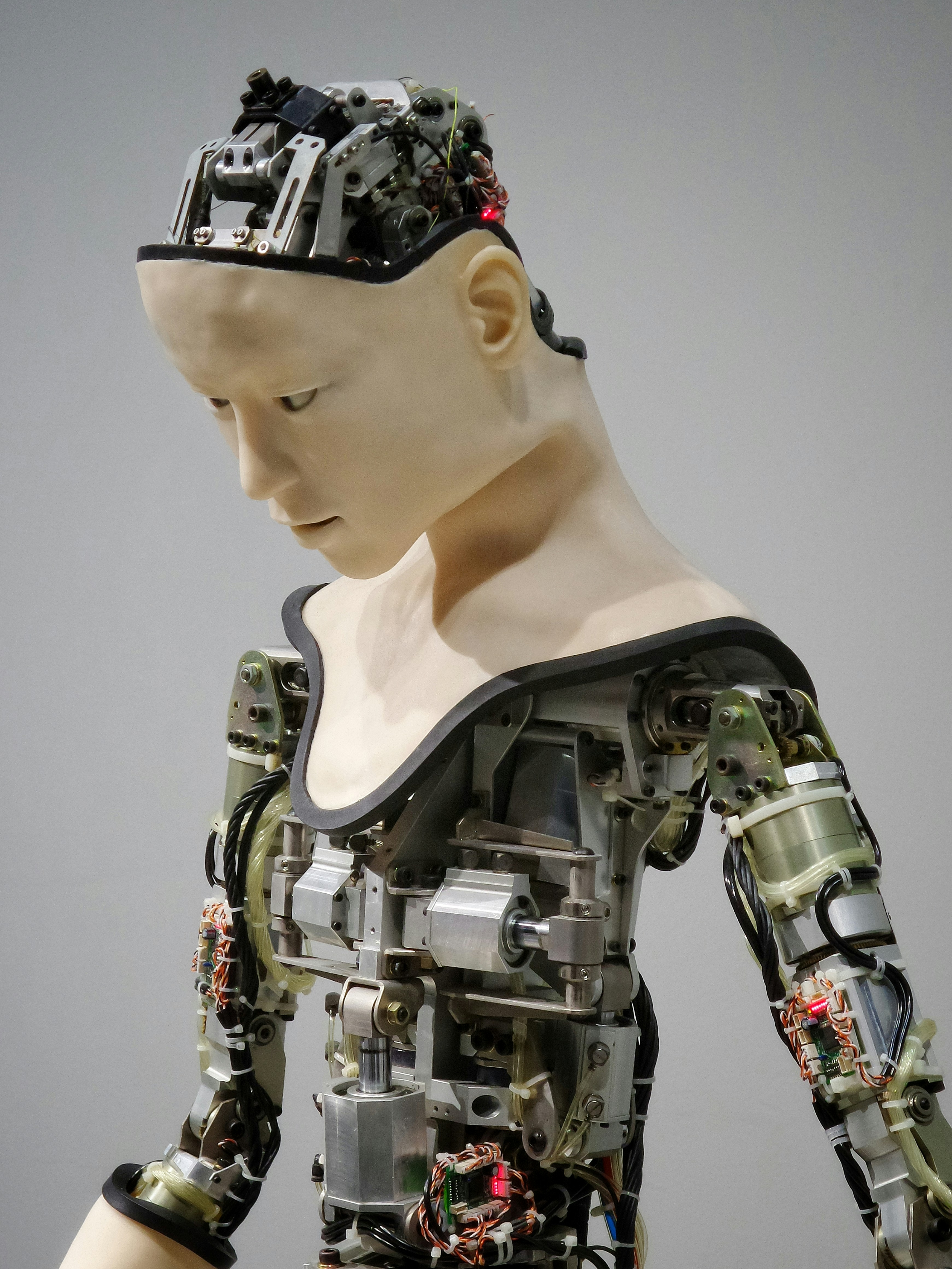In the ever-evolving world of technology, one term seems to be on everyone’s lips: Artificial Intelligence (AI). From self-driving cars to virtual assistants, AI has seeped into almost every aspect of our lives. But what about its impact on Software as a Service (SaaS) applications? In this article, we will explore the future of AI in SaaS and the game-changing revolution it promises. So fasten your seatbelts and get ready to discover how AI is set to transform the way we use business software.
1. Introduction to AI in SaaS
Artificial Intelligence (AI) has revolutionized various industries, including Software as a Service (SaaS). To understand the impact of AI in SaaS, let’s begin by defining SaaS.
Definition of SaaS
SaaS refers to a cloud-based software delivery model where the software is hosted and maintained by a third-party provider. Instead of purchasing and installing software on individual devices, users can access and use the software through the internet. This model offers several benefits such as scalability, cost-effectiveness, and ease of maintenance.
Explanation of AI
AI is a branch of computer science that enables machines to perform tasks that typically require human intelligence. It involves the development of algorithms and models that allow machines to analyze data, make decisions, and learn from experience. AI technologies, such as machine learning and natural language processing, have opened up new possibilities for SaaS applications.
Integration of AI in SaaS
AI can be integrated into SaaS applications to enhance their functionality and provide advanced capabilities. By leveraging AI, SaaS providers can offer intelligent features such as predictive analytics, automation, and personalized experiences. This integration allows businesses to optimize their operations, improve decision-making, and provide a better user experience.
2. Current State of AI in SaaS
The current state of AI in SaaS is rapidly evolving, with numerous applications and key players in the industry.
Overview of AI applications in SaaS
AI has found applications in various SaaS domains, including customer relationship management (CRM), human resources management, sales and marketing automation, financial management, and supply chain management. These applications enable businesses to streamline processes, analyze data more effectively, and improve productivity.
Key players in the industry
Several key players have emerged in the AI-enabled SaaS market. Companies like Salesforce, Microsoft, Oracle, and SAP offer AI-powered solutions that cater to different business needs. These players continue to innovate and develop new AI capabilities to stay ahead in the competitive market.
Challenges faced by AI in SaaS
Despite the advancements in AI technology, there are challenges that AI in SaaS faces. These include privacy and data security concerns, lack of transparency and accountability in AI algorithms, ethical use of AI, and the potential dependency on AI systems. It is crucial for businesses and SaaS providers to address these challenges to ensure responsible and effective utilization of AI in SaaS applications.
3. Advancements in AI Technology
AI technology continues to advance, bringing about significant developments in various fields. Here are some key advancements in AI technology that have impacted SaaS applications:
Deep Learning and Neural Networks
Deep learning, a subset of AI, focuses on training deep neural networks to analyze and understand complex patterns in data. This technology has revolutionized tasks such as image and speech recognition, natural language processing, and recommendation systems. SaaS applications can leverage deep learning algorithms to provide accurate insights and automate processes.
Natural Language Processing (NLP)
NLP enables machines to understand and interpret human language, leading to advancements in chatbots, virtual assistants, and sentiment analysis. SaaS applications can employ NLP techniques to enhance customer support, automate text analysis, and provide intelligent search capabilities.
Computer Vision
Computer vision allows machines to recognize and understand visual content such as images and videos. This technology has applications in industries like healthcare, retail, and manufacturing. In SaaS, computer vision can be utilized for tasks like image recognition, video analytics, and object detection.
Predictive Analytics
Predictive analytics utilizes AI algorithms to analyze historical and real-time data, enabling businesses to make accurate predictions and forecasts. SaaS applications can leverage predictive analytics to optimize inventory management, improve sales forecasting, and enhance customer retention strategies.
4. The Benefits of AI in SaaS
The integration of AI in SaaS offers several benefits to businesses. Let’s explore some of the key advantages:
Increased Efficiency and Automation
AI-enabled SaaS applications can automate repetitive tasks and processes, reducing manual efforts and improving operational efficiency. This automation allows employees to focus on more strategic and value-added activities.
Improved Decision Making and Insights
AI algorithms can analyze vast amounts of data and provide actionable insights in real-time. SaaS applications equipped with AI capabilities can empower businesses to make data-driven decisions and gain a competitive edge.
Enhanced User Experience
AI enables SaaS applications to personalize user experiences based on individual preferences and behaviors. This personalization enhances user satisfaction and engagement, leading to improved customer retention.
Cost Savings
By automating processes and optimizing resource allocation, AI in SaaS can help businesses reduce costs. Companies can save on staffing expenses, streamline operations, and avoid potential errors that could result in financial losses.
Scalability and Flexibility
AI-enabled SaaS applications are designed to be scalable and flexible, allowing businesses to adapt to changing demands and requirements. These applications can seamlessly accommodate an increase in users, data volume, and complexity.
5. Use Cases and Examples
There are numerous use cases and examples of AI in SaaS applications across various industries. Let’s explore a few:
Customer Relationship Management (CRM)
AI-powered CRM systems can analyze customer data, predict buying behaviors, and generate personalized recommendations. These capabilities enable businesses to enhance customer satisfaction, improve sales performance, and strengthen customer relationships.
Human Resources Management
AI in human resources management can automate recruitment processes, analyze resumes, and provide insights for talent management. This automation improves efficiency, reduces biases, and enables HR professionals to make more informed decisions.
Sales and Marketing Automation
AI-based sales and marketing automation platforms can analyze customer data, identify potential leads, and personalize marketing campaigns. These capabilities help businesses optimize their sales and marketing efforts, leading to increased conversion rates and revenue.
Financial Management
AI in financial management SaaS applications can automate accounting processes, detect anomalies, and provide real-time financial insights. This automation streamlines financial operations and enables businesses to make accurate financial decisions.
Supply Chain Management
AI-powered supply chain management systems can optimize inventory management, enhance demand forecasting, and automate logistics processes. These capabilities improve supply chain efficiency, reduce costs, and ensure timely deliveries.
6. The Future of AI in SaaS
The future of AI in SaaS is promising and presents exciting possibilities for businesses. Let’s explore some trends and directions for AI in SaaS:
Integration of AI in every SaaS application
As AI technology continues to advance, we can expect AI to be integrated into every aspect of SaaS applications. From customer support to data analysis, AI will enhance the functionality and performance of SaaS solutions.
Personalized and Adaptive Experiences
AI will enable SaaS applications to provide highly personalized and adaptive user experiences. Through continuous learning and data analysis, these applications will understand user preferences and tailor the experience accordingly.
Continuous Learning and Improvement
AI-enabled SaaS applications will continuously learn from user interactions and feedback, improving their performance over time. This continuous learning will result in more accurate predictions, better recommendations, and enhanced overall usability.
Ethical Considerations
As AI becomes more prevalent in SaaS applications, ethical considerations will gain importance. Businesses and SaaS providers must ensure the responsible and ethical use of AI, addressing issues such as bias, privacy, and transparency.
Job Displacement and Skills Upgrading
The integration of AI in SaaS applications may lead to job displacement in certain roles. However, it also presents opportunities for upskilling and reskilling the workforce. Businesses should invest in training programs to enable employees to adapt to the changing landscape.
7. Key Challenges and Risks
While AI in SaaS offers numerous benefits, it also comes with challenges and risks that need to be addressed:
Privacy and Data Security
The integration of AI requires the collection and analysis of large amounts of data. This raises concerns regarding privacy and data security. SaaS providers should prioritize robust security measures and ensure compliance with regulations to protect sensitive information.
Lack of Transparency and Accountability
AI algorithms can sometimes be complex and difficult to interpret. Lack of transparency and accountability in AI decision-making processes raises concerns regarding bias and fairness. SaaS providers should strive for transparency and explainability in their AI models.
Ethical Use of AI
As AI becomes more powerful, ethical considerations become crucial. SaaS providers should implement ethical guidelines and frameworks to ensure the responsible and ethical use of AI in their applications.
Dependency on AI
While AI can bring significant benefits, businesses must be cautious about becoming overly dependent on AI systems. It is essential to maintain human oversight and control to prevent over-reliance and mitigate potential risks.
8. How to Choose the Best AI-enabled SaaS
Selecting the right AI-enabled SaaS involves careful evaluation based on specific business needs. Consider the following factors when choosing the best AI-enabled SaaS:
Identify your Business Needs
Clearly define your requirements and objectives before selecting an AI-enabled SaaS. Consider the specific functionalities and capabilities that align with your business goals.
Evaluate AI Capabilities
Assess the AI capabilities offered by different SaaS providers. Look for features such as machine learning, natural language processing, and predictive analytics that can add value to your business operations.
Consider Integration and Compatibility
Ensure that the AI-enabled SaaS seamlessly integrates with your existing systems and workflows. Compatibility with other tools and platforms is crucial for efficient collaboration and data exchange.
User-Friendly Interface
Choose an AI-enabled SaaS that offers a user-friendly interface. The ease of use and intuitive design will contribute to a smoother adoption process and enhance user productivity.
Vendor Reliability and Support
Evaluate the reputation and reliability of the SaaS provider. Consider factors such as customer reviews, vendor track record, and the availability of technical support to ensure a smooth implementation and ongoing support.
9. Conclusion
AI has introduced a game-changing revolution in the SaaS industry. The integration of AI in SaaS applications offers businesses advanced capabilities, improved efficiency, and enhanced user experiences. The future of AI in SaaS presents exciting possibilities, but it also requires careful considerations of ethical, privacy, and security aspects. With thorough evaluation and consideration of business needs, companies can select the best AI-enabled SaaS solution to drive growth and success.
10. References
- The Future of AI in SaaS: A Game-Changing Revolution
- Source 2
- Source 3




